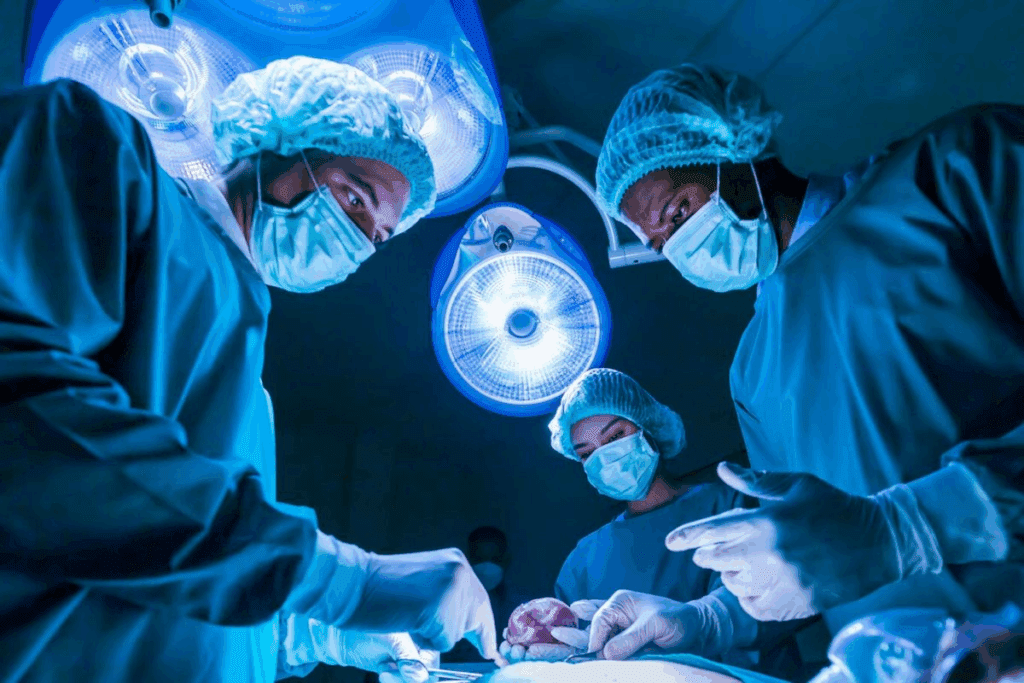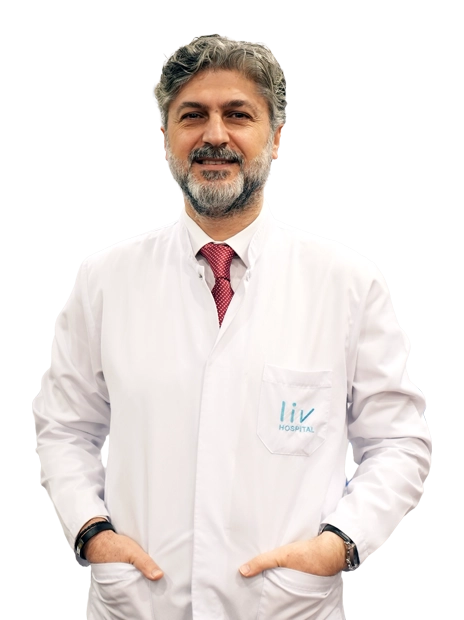
Deciding to have surgery is a big deal. Getting a cold before your surgery can worry you. At Liv Hospital, we get it and want to help you make the right choice.
Can you havesurgery with a cold? Learn the guidelines for postponement, especially if you have a fever or productive cough.
Having a cold before surgery can affect its safety and how well you recover. It’s key to know how bad your cold symptoms are. Our focus is on you, making sure we check everything before surgery to keep you safe.
We’ll look into the details of having surgery with cold symptoms. We’ll also guide you on what to do next.
Key Takeaways
- Having a cold before surgery can impact the safety of the procedure.
- A thorough check before surgery is key to manage risks.
- The severity of cold symptoms is important in deciding what to do.
- It’s important for patients to know the risks and benefits of surgery.
- Liv Hospital puts your safety and well-being first.
The Impact of Respiratory Infections on Surgical Safety

Respiratory infections can greatly affect the risks of surgery. If a patient has a cold or infection, it can change how their body reacts to surgery and anesthesia.
Going under the knife is a big deal. Having a cold or infection makes things even more complicated. It’s key to know how these infections affect safety to make smart choices.
How Colds Affect Your Body’s Systems
Colds and infections cause many body responses that can harm surgical safety. Inflammation is a big worry, as it can mess with the respiratory and heart systems.
When you’re sick, your body fights off the infection by making more mucus. This can cause breathing problems during surgery. The extra mucus makes it hard to keep the airway open during anesthesia.
Inflammation and Excess Mucus Production
Inflammation and extra mucus can really mess up surgery results. Airway reactivity goes up with infections, making it hard to control the airway during anesthesia. This can cause breathing issues or distress.
Also, the extra mucus can make recovery harder. It can lead to more infections or lung problems. Knowing these risks is important for patients and doctors to get the best results.
By understanding how infections affect surgery, we can take steps to reduce risks. This helps ensure a smoother recovery for everyone.
Can You Have an Operation With a Cold? Medical Guidelines

Deciding to have surgery with a cold is a big deal. Doctors look at many things. They think about how bad the cold is, what surgery is needed, and the patient’s health.
Doctors make a choice between emergency and elective surgeries. Emergency surgeries are urgent and can’t wait. Elective surgeries are planned and can be delayed.
Emergency vs. Elective Procedures
Emergency surgeries are done right away because they’re life-saving. Elective surgeries are planned and can wait.
Surgery Type | Characteristics | Decision to Proceed with Cold Symptoms |
Emergency Surgery | Immediate need, life-threatening conditions | Generally proceeds with caution, considering the risks |
Elective Surgery | Scheduled in advance, non-life-threatening | Often postponed until cold symptoms resolve |
The Decision-Making Process
Deciding to have surgery with a cold is complex. Doctors look at how bad the cold is, any health issues, and how urgent the surgery is.
Key considerations include:
- The severity of the cold symptoms
- The type of surgery needed (emergency vs. elective)
- The patient’s overall health and any underlying conditions
Doctors use these factors to decide if surgery should go ahead or wait until the cold is gone.
When Surgery Might Proceed Despite Cold Symptoms
If surgery is urgent, it might happen even with a cold. But doctors are very careful. They take extra steps to keep risks low.
Why Anesthesia Complications Increase With Respiratory Illness
Colds and other respiratory illnesses can make anesthesia more challenging to administer safely. When patients come in for surgery with a respiratory infection, several factors come into play that can complicate anesthesia management.
Airway Reactivity During Colds
One of the primary concerns is airway reactivity. During a cold, the airways become more sensitive and reactive. This heightened sensitivity can lead to complications when anesthesia is administered, as the airways may react more strongly to the presence of an endotracheal tube or other airway management devices.
The increased reactivity can result in:
- Bronchospasm, which can cause wheezing and difficulty breathing
- Laryngospasm, potentially leading to complete airway obstruction
- Increased risk of respiratory complications during and after surgery
Mucus Accumulation Under Anesthesia
Another significant issue is mucus accumulation. Respiratory infections lead to increased mucus production, which can complicate anesthesia in several ways:
- Mucus can obstruct the airway, making ventilation more difficult
- It can interfere with the proper placement and functioning of airway devices
- Excess mucus may require additional suctioning during and after surgery, potentially prolonging the procedure and recovery
Understanding these challenges is key for anesthesiologists to manage risks effectively and ensure patient safety during surgery.
Going Under Anesthesia With a Cold: Specific Risks
Having a cold can make anesthesia risks higher. It’s important to know these risks to keep patients safe during and after surgery.
Breathing Difficulties During Surgery
One big worry with anesthesia and a cold is breathing problems during surgery. Colds cause inflammation and more mucus, making breathing hard. This can lead to serious issues like bronchospasm or laryngospasm, needing quick help.
Post-Operative Respiratory Complications
After surgery, breathing problems can get worse. Symptoms like coughing, wheezing, or shortness of breath can happen. These issues can make recovery longer and might need extra treatment or hospital stay.
Recovery Room Monitoring
Patients with colds need close watch in the recovery room. Medical staff must look out for breathing troubles or other issues. Quick action is key to avoid problems and help recovery.
Knowing these risks helps us handle anesthesia better for patients with colds. This way, we can improve safety and outcomes for them.
Cold Medications and Anesthesia Interactions
When you’re getting ready for surgery, knowing how cold meds might affect anesthesia is key. We focus on keeping you safe, which means knowing about any possible drug interactions.
Over-the-Counter Cold Remedies to Avoid
Some OTC cold meds can be risky before surgery. For example, decongestants like pseudoephedrine can raise your heart rate and blood pressure. This might make it harder for the anesthesia to work right.
Antihistamines help with cold symptoms but can make you sleepy and dry-mouthed. These effects might make recovery harder. We tell patients to stop taking these meds a few days before surgery to avoid problems.
Also, some cold meds have more than one ingredient. This can up the chance of bad reactions. Always talk to your doctor before taking any meds if you’re having surgery.
“The use of certain cold medications can significantly impact anesthesia management and patient safety during surgery.”
Medical Expert, Anesthesiologist
Prescription Medications That Pose Concerns
Prescription meds for colds or related issues can also interact with anesthesia. For instance, some antiviral meds or cough suppressants might affect how anesthesia works or increase risks. We review all prescription meds with patients before surgery.
Medication Type | Potential Risk | Recommended Action |
Decongestants | Increased heart rate and blood pressure | Avoid for 24-48 hours before surgery |
Antihistamines | Drowsiness and dry mouth | Consult doctor for alternative |
Antiviral Medications | Potential interaction with anesthesia | Discuss with anesthesiologist |
Timing Considerations for Medication Use
When it comes to taking cold meds before surgery, timing is everything. We usually tell patients to stop taking them at least 24 hours before surgery. But, this can change based on the drug and your health. Always follow what your healthcare team tells you.
Knowing how cold meds and anesthesia might interact helps keep you safe during surgery. Always talk to your healthcare provider about managing cold symptoms before surgery.
Can You Have Surgery With a Sinus Infection?
Surgery with a sinus infection is tricky. It affects both the patient’s health and the surgery’s risks. Surgeons and patients must think carefully about this.
Unique Risks of Sinus Infections
Sinus infections can make surgery harder. They cause more inflammation and mucus. This can make anesthesia and surgery more complicated.
These infections can also lead to breathing problems after surgery. It’s very important to check the patient’s health before surgery.
Some risks include:
- More chance of breathing problems during and after surgery
- Infection spreading to the surgery area
- Problems with anesthesia because of airway and mucus issues
Potential for Bacterial Spread
Having surgery with a sinus infection can spread bacteria. If the infection is caused by bacteria, it might spread to the surgery area or other parts of the body. This can cause more problems.
To avoid this, doctors take certain steps:
- Give antibiotics before or during surgery
- Watch for signs of infection spreading
- Treat the sinus infection before doing elective surgeries
Special Precautions for Facial or Nasal Surgeries
Surgeries in the facial or nasal area need extra care with a sinus infection. These surgeries are more likely to have problems from nearby infections.
Special steps include:
- Do a detailed check before surgery to see how bad the infection is
- Plan the surgery to avoid spreading the infection
- Focus on preventing infection and helping the body heal after surgery
By knowing these risks and taking the right steps, patients and doctors can reduce problems. This helps get the best results from surgery.
Special Considerations for Children With Colds
When kids have colds and need surgery, doctors face big challenges. These kids aren’t just uncomfortable from their colds. They also have to deal with the stress of anesthesia and surgery.
Increased Perioperative Respiratory Risks
Children with colds are more likely to face breathing problems during surgery. These problems can include tight airways, wheezing, and low oxygen levels. Their colds can make breathing harder and add to the challenge of anesthesia.
Key factors contributing to these risks include:
- The child’s age and overall health status
- The severity of cold symptoms
- The type of surgical procedure being performed
How Pediatric Anesthesiologists Manage Cold Symptoms
Pediatric anesthesiologists are key in helping kids with colds go through surgery safely. They use different methods to reduce the risks of cold symptoms, such as:
Careful preoperative assessment to check how bad the cold symptoms are and how they might affect surgery.
Optimizing anesthesia techniques to lower the chance of breathing problems.
We make sure the anesthesia plan fits the child’s needs, considering their cold and health.
By knowing these special needs, we can manage the risks better. This helps ensure the best results for our young patients.
When Doctors Will Likely Postpone Your Surgery
Knowing when surgery might be delayed is key for patients with cold symptoms. We aim to keep our patients informed about what might cause a delay. This way, they can plan better.
Red Flag Symptoms That Lead to Cancellation
Some symptoms can make us delay surgery to avoid risks. These include:
- High fever: A fever over 101°F (38.3°C) might mean a serious infection that could make surgery risky.
- Severe cough: A bad cough can make breathing and anesthesia tricky.
- Shortness of breath: Trouble breathing or wheezing could mean lung problems that need fixing first.
- Purulent discharge: Thick, colored discharge from the nose or throat might show a bacterial infection.
If these symptoms show up, we weigh the risks and benefits of surgery. Often, it’s safer to wait until the patient gets better.
Timeline for Rescheduling After Recovery
The wait time to reschedule surgery after a cold or infection depends on how bad it was and the surgery type. Usually, we suggest waiting:
Condition | Waiting Period |
Mild cold symptoms | 3-5 days after symptoms resolve |
Moderate to severe cold symptoms | 7-10 days after symptoms resolve |
Lower respiratory tract infections | 2-4 weeks after symptoms resolve |
This wait helps the body heal and lowers the chance of problems after surgery.
Financial and Insurance Implications
Delaying surgery can cost money, like fees for rescheduling or cancellation. It’s important to know your insurance and our facility’s policies on these issues.
We suggest checking your insurance and talking to our staff about any worries.
Understanding why surgery might be delayed helps patients deal with the challenges of planning and recovery. We’re dedicated to giving the care and support needed for the best results for our patients.
How to Communicate With Your Surgical Team About Cold Symptoms
It’s very important to tell your surgical team if you have cold symptoms before surgery. This helps them understand the risks and keep you safe during the operation.
When to Notify Your Doctor
Let your doctor know right away if you start feeling cold symptoms before your surgery. This way, they can decide if it’s safe to go ahead with the surgery or if it should be delayed.
Important factors to consider when deciding when to notify your doctor include:
- The severity of your cold symptoms
- The proximity to your scheduled surgery date
- Any underlying health conditions that may be exacerbated by a cold
Important Information to Share
When talking to your surgical team, give them all the details about your cold symptoms. This includes:
Symptom | Description |
Cough | Duration and severity |
Congestion | Nasal or sinus congestion |
Fever | Temperature and duration |
Sore Throat | Severity and impact on swallowing |
Questions to Ask Before Proceeding
Before you decide to go ahead with surgery, ask your team some important questions. This will help you understand how your cold might affect your surgery. Some questions to ask include:
- How will my cold symptoms affect the surgery?
- Are there any additional risks associated with having a cold during surgery?
- What precautions can be taken to minimize the risks?
- Should I postpone my surgery, and if so, for how long?
Talking openly with your surgical team about your cold symptoms is key. It helps you make a well-informed decision about your surgery. And it ensures you take the right steps to stay safe.
How to Get Rid of a Cold Before Surgery
The weeks before surgery are key for boosting your immune system. This helps lower the chance of getting a cold. It’s important to take steps to stay healthy before your surgery.
Immune-Boosting Strategies
Boosting your immune system is essential before surgery. You can do this by changing your diet, taking supplements, and making lifestyle changes. Eating foods high in vitamins C and D, zinc, and antioxidants is helpful. Key foods include citrus fruits, leafy greens, and nuts. Also, keeping your gut healthy with probiotics supports your immune system.
“A well-nourished body is better equipped to fight off infections and recover from surgery,” emphasizes the importance of a balanced diet in the pre-surgical period.
Rest and Hydration Protocols
Getting enough rest and staying hydrated are key to avoiding and recovering from a cold. Aim for 7-9 hours of sleep each night to boost your immune system. Drinking plenty of water keeps your respiratory system working well. It’s recommended to drink at least 8 cups (64 ounces) of water per day.
- Drink water regularly throughout the day
- Avoid caffeinated and sugary drinks that can dehydrate
- Monitor your urine output to ensure you’re staying hydrated
When to Start Preventive Measures
Starting preventive measures early is important to avoid a cold before surgery. We suggest starting these efforts 2-4 weeks before your surgery. This gives your body time to benefit from immune-boosting strategies and lowers cold risk. Consistency is key, so make these practices a part of your daily routine.
By focusing on immune-boosting strategies, rest, and hydration, you can lower the risk of a cold on surgery day. Being proactive and caring for your health before surgery is essential.
Recovery Considerations After Surgery With a Cold
Surgery recovery is delicate, and a cold adds extra challenges. Your body is already stressed, so watching both your surgery recovery and cold symptoms is key.
Managing Both Surgical and Cold Symptoms
Managing your recovery means tackling both the surgery and cold symptoms at once. Use saline nasal sprays, stay hydrated, and use a humidifier to ease congestion.
Key Strategies for Managing Symptoms:
- Use over-the-counter medications as directed by your doctor to alleviate cold symptoms.
- Practice good hygiene to prevent the spread of infection.
- Rest adequately to allow your body to recover.
Extended Recovery Timelines
Having surgery with a cold can make recovery longer. Your body is working hard to heal both the surgery and cold. Be patient and don’t rush your recovery.
Recovery Aspect | Typical Recovery | Recovery With a Cold |
Energy Levels | Gradual return to normal within 2-4 weeks | May take 4-6 weeks or longer |
Congestion | Minimal to none | May persist for 1-2 weeks post-surgery |
Pain Management | Controlled with medication | May require additional medication or adjustments |
When to Seek Additional Medical Help
Know when to seek more medical help. Severe breathing trouble, fever over 101.5°F, or increased pain or swelling at the surgery site means you should call your doctor right away.
Recovering from surgery with a cold needs careful watching and might need extra help. Understanding the challenges and taking proactive steps can help you get through this tough recovery.
Conclusion
Deciding to have surgery is a big choice, and having a cold makes it even more complex. We’ve talked about how a cold can affect safety during surgery, problems with anesthesia, and how it impacts recovery. It’s important for patients to know these things and work closely with their doctors.
When thinking about surgery with a cold, careful planning is key. Patients should talk openly with their surgical team about their cold symptoms and health history. This way, they can handle the challenges of surgery better.
The choice to have surgery with a cold depends on many factors. These include how bad the cold symptoms are, the type of surgery, and the patient’s overall health. By focusing on safety and making informed choices, we can help ensure the best results for those having surgery with a cold.
FAQ
Can I have surgery if I have a cold?
It’s best to wait if you have a cold before surgery. This is because colds can make surgery riskier. But, it depends on how bad your cold is and what surgery you need.
How does having a cold affect surgical safety?
A cold can cause swelling and more mucus. This can make surgery riskier, mainly with anesthesia. It might make breathing hard and increase risks after surgery.
Can I have general anesthesia with a cold?
Getting general anesthesia with a cold is risky. It can make breathing harder and lead to complications after surgery.
What are the risks of undergoing anesthesia with a cold?
Risks include breathing problems during and after surgery. There’s also a chance of anesthesia complications. It’s important to watch closely after surgery.
Can I have surgery with a sinus infection?
Surgery with a sinus infection is risky, more so for facial or nasal surgeries. The infection could spread. Special care is needed to avoid this.
How do pediatric anesthesiologists manage cold symptoms in children?
Pediatric anesthesiologists are extra careful with colds in kids. They watch closely and adjust anesthesia plans to keep kids safe.
When will doctors likely postpone my surgery due to a cold?
Surgery might be delayed if you have severe symptoms like high fever or trouble breathing. How soon you can reschedule depends on your symptoms and surgery type.
How can I get rid of a cold before surgery?
To beat a cold before surgery, boost your immune system, rest, and drink plenty of water. Start early to reduce cold risk on surgery day.
What should I do if I have cold symptoms before surgery?
Tell your surgical team about your cold symptoms right away. Share details and ask about risks and what it means for your surgery.
Can cold medications interact with anesthesia?
Yes, some cold meds can affect anesthesia. Always tell your anesthesiologist about any meds you’re taking. Some might need to be avoided or changed before surgery.
How can I minimize the risks associated with having surgery with a cold?
Follow your team’s advice and manage your cold symptoms before surgery. Rest, stay hydrated, and use immune-boosting methods.
References
National Center for Biotechnology Information. (2025). Can You Have Surgery With a Cold What. Retrieved from https://pubmed.ncbi.nlm.nih.gov/17238887/

































